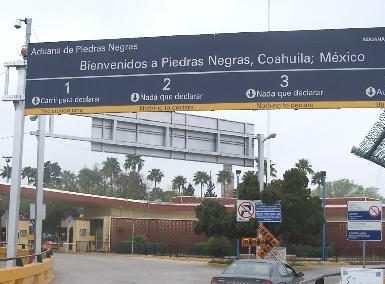Mexico passed historic labor reforms last week as part of its commitment to a new free trade deal with the United States and Canada, called the United States-Mexico-Canada Agreement (USMCA).
The reforms also are in step with new Mexican President Andres Manuel Lopez Obrador’s campaign promise to enact social measures to uplift the lower classes.
Included in the new law? Higher wages for Mexican workers, the right to organize, protections against discrimination in the workplace, new arbitration processes, and more. Obrador already increased the minimum wage 16.2 percent in December, Mexico’s largest increase in 23 years.
But will it be enough to convince the U.S. Congress to act? Democrats have stalled for months on moving the trade agreement forward, saying the labor reforms needed to be in place first.
“Now it’s up to the United States government, to the U.S. legislators, to finish approving the free-trade agreement,” President Obrador said after Mexico passed the new labor laws April 30.
White House lead trade representative Robert Lighthizer responded in kind with a vow to seal the deal, calling the reforms the “strongest, most advanced, and most comprehensive labor obligations of any U.S. trade agreement.”
“These reforms will greatly improve Mexico’s system of labor justice and are exactly what labor leaders in the United States and Mexico have sought for decades,” Lighthizer said in a prepared statement.
Protecting free and open trade in North America
The new USMCA is an update of the North American Free Trade Agreement (NAFTA) that has allowed zero-tariff trade between the three countries for 25 years, creating one of the largest and most profitable trade blocs in the world. The USMCA contains new provisions to deal with the modern age including chapters on digital trade and cyber theft of intellectual property.
Mexico’s recent actions offer new hope for exporters and importers across the third largest continent, said Luis Ramirez, president and CEO of Ramirez Advisors Inter-National, LLC, in Phoenix, that specializes in cross border initiatives and governmental affairs.
“We think the stars are starting to line up,” Ramirez said. “Mexico has passed the labor reforms. Industry is actively voicing their support.”
The significance of the trading relationship among the three countries cannot be overestimated, he said. NAFTA has resulted in 11 million U.S. jobs and $1.3 trillion in trade between the three countries.
But the impacts go far beyond the numbers, Ramirez said.
Failure to ratify will set a bad precedent that could hurt America’s other global trade relationships. The longer the ratification process is delayed, the more complicated it can become, particularly if the process becomes a political football during the upcoming election cycle.
“When we work with our clients whether its border communities on both sides of the border or corporate entities that are looking to do cross border business, the question continues to come up, when is this agreement going to be ratified because they are looking for certainty,” Ramirez said.
Industry ratchets up cry for passage
In light of the news out of Mexico, industry groups across the nation are repeating their calls to Congress to ratify the deal before it’s too late: the U.S. Chamber of Commerce, the National Association of Manufacturers, American Farm Bureau, Association of Equipment Manufacturers, the Advanced Medical Technology Association, the American Automotive Policy Council, Small Business and Entrepreneurship Council, and many others.
Last week, 67 agricultural and food groups and related industries wrote congressional leaders in strong support of ratification.
The U.S. Hispanic Chamber of Commerce (USHCC) that represents more than 4 million Hispanic owned businesses also sent letters to congressional members.
“This agreement is an extremely important step forward for the North American economy,” writes Ramiro Cavazos, president and CEO of the USHCC. “Trilateral trade is essential for Hispanic Business Enterprises, local Hispanic Chambers, and Fortune 500 Companies that we are proud to represent. We firmly believe that USMCA will create increased economic opportunities throughout North America.”
In addition, U.S. wages across all fields will grow, with the largest wage increases expected in the manufacturing and mining sectors, Cavazos said.
“With Hispanics making up 16.7 percent of the manufacturing industry, and 20.7 percent of the mining industry, it is clear that our community has a substantial stake in the USMCA being ratified.”
















Add comment